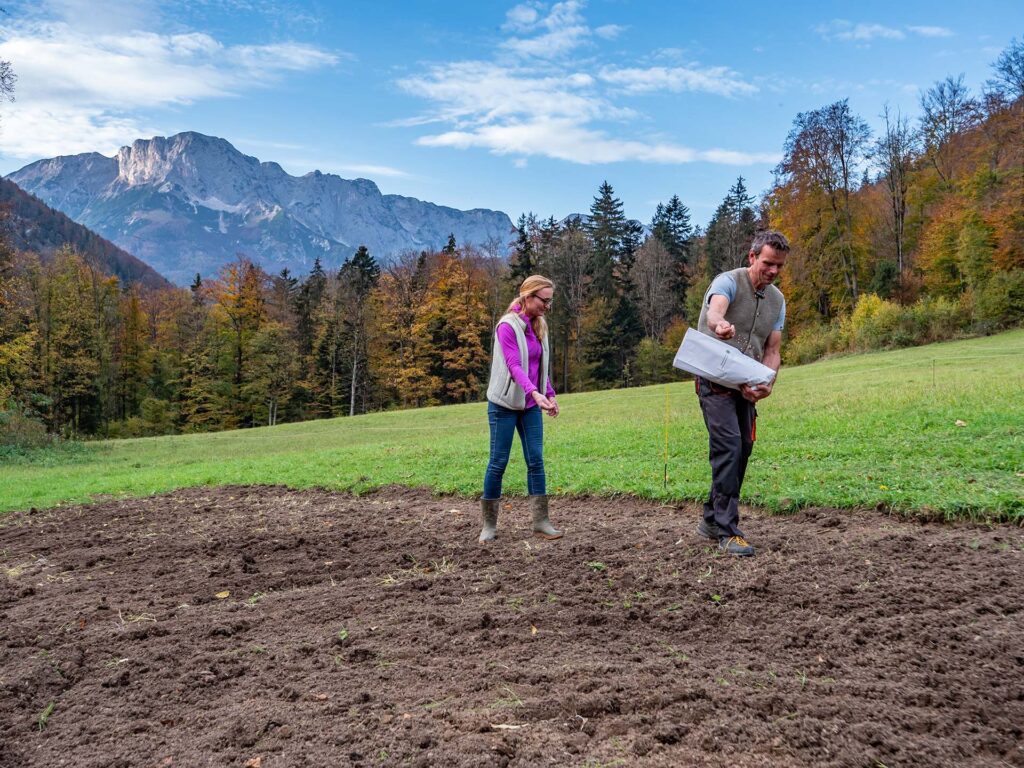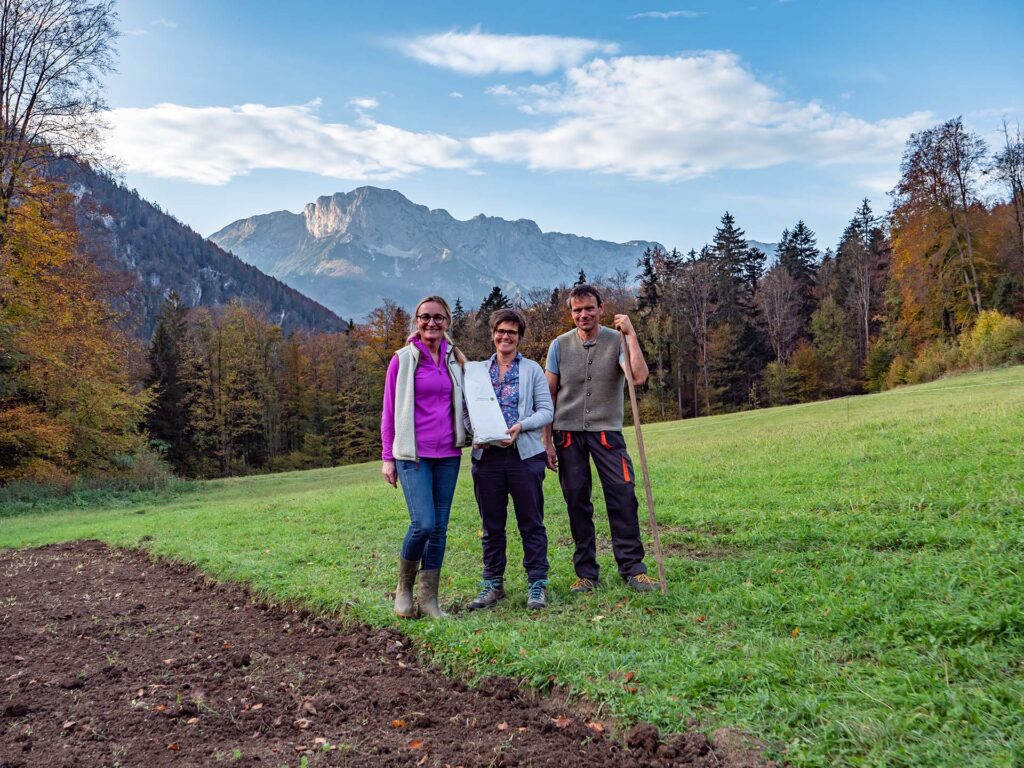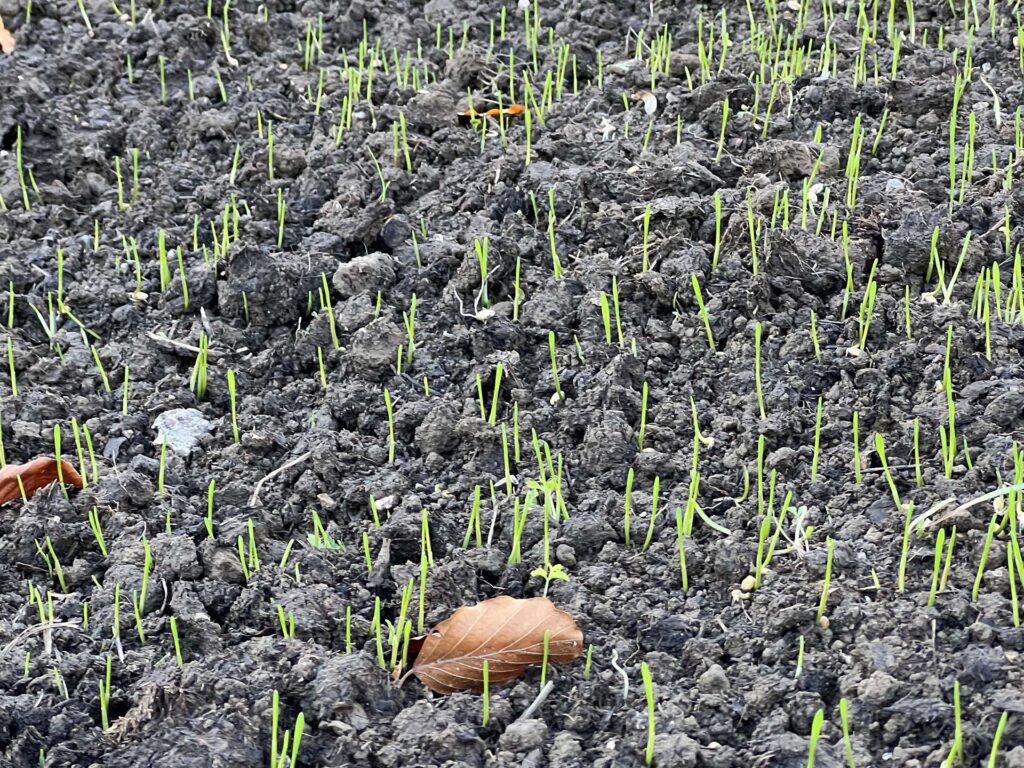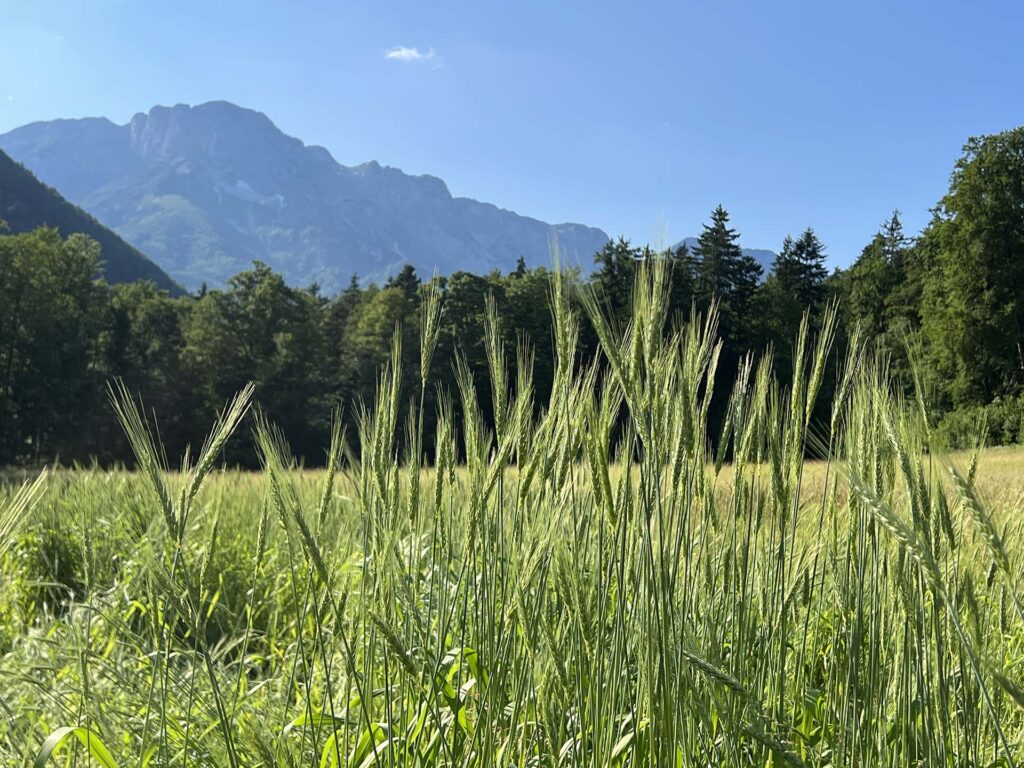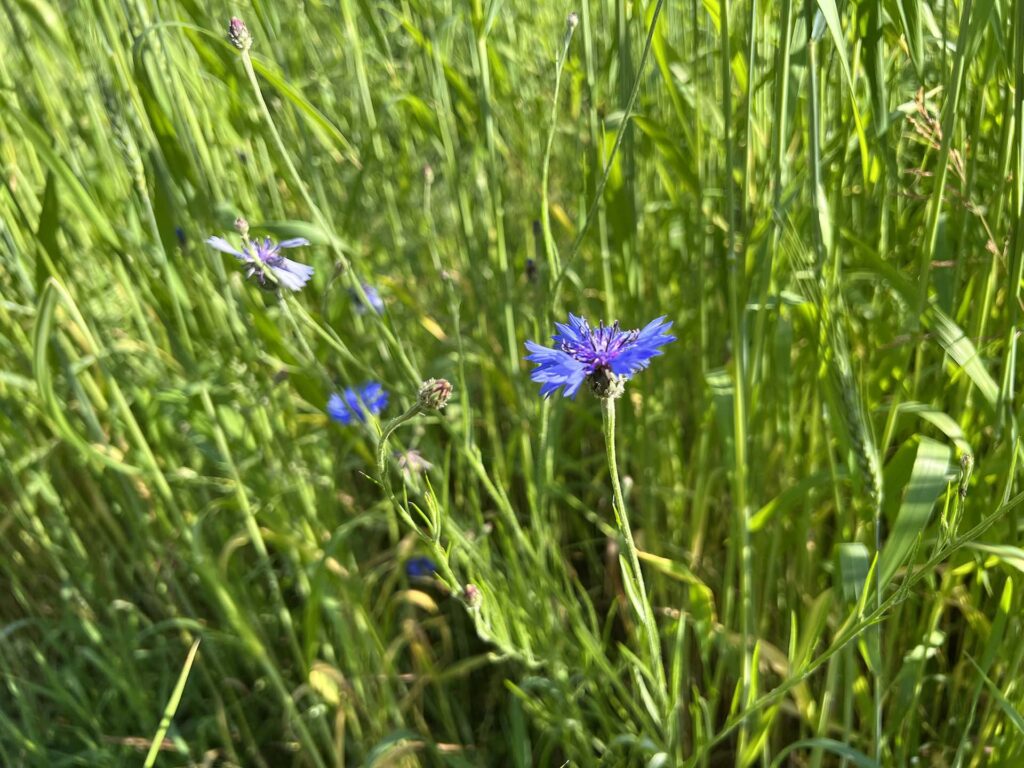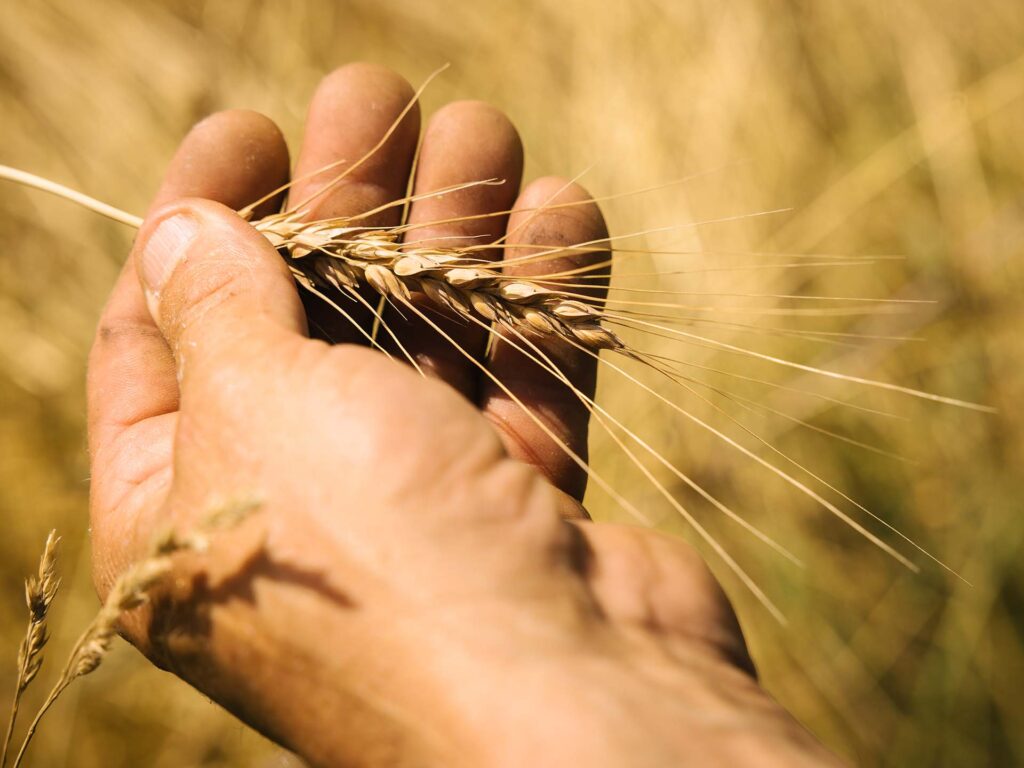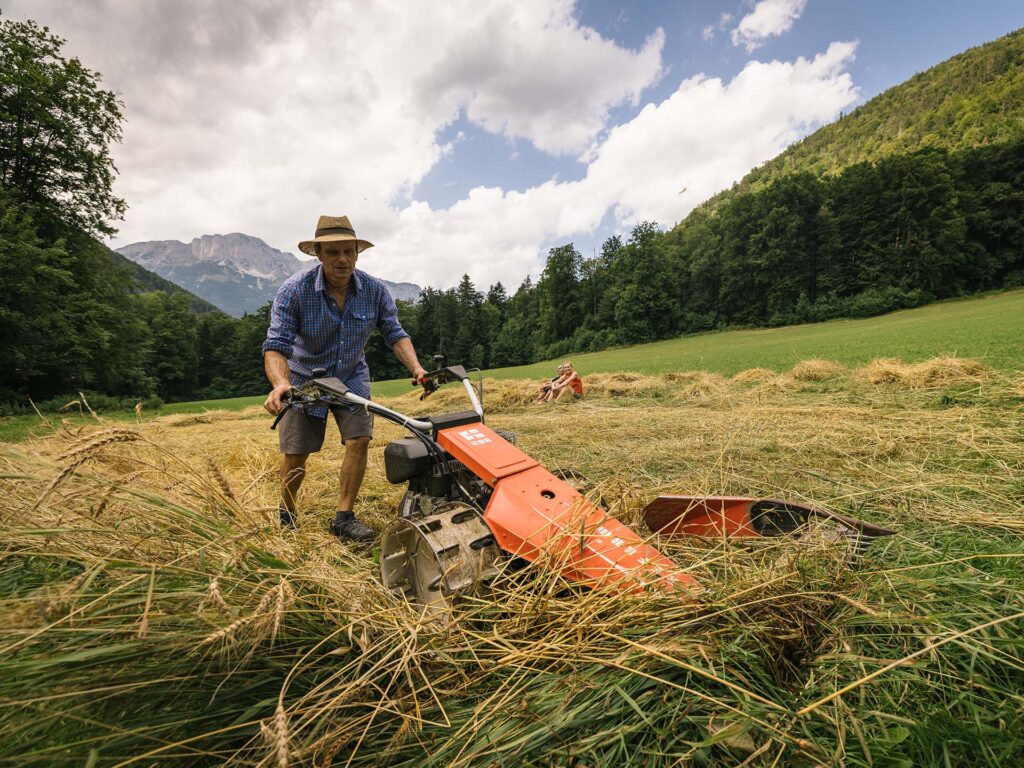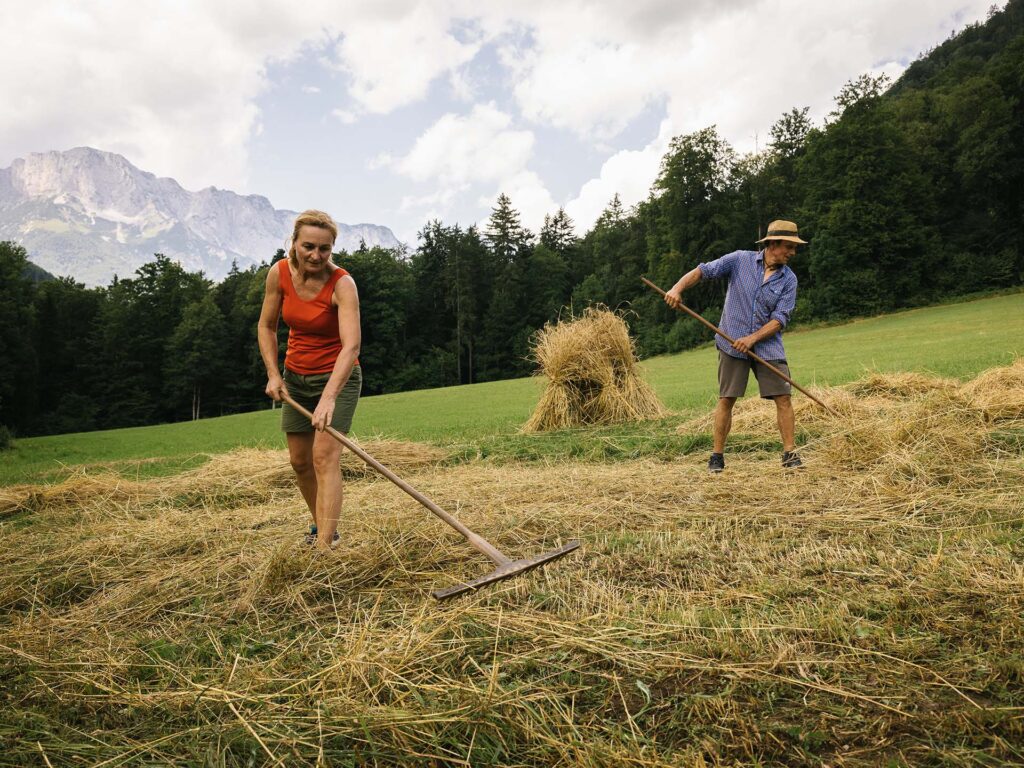Berchtesgadener Vogel wheat
The "Vogerlwoaz”, an old winter wheat
In 2018, the Berchtesgadener Vogel, an old variety of winter wheat, was brought back to its namesake Berchtesgadener Land. Strting with only three kilograms of seeds, it was cultivated in the Biosphere Grain Garden . After two years of re-propagation, it was sown on two organic farms and has been used in the biosphere product “Bio Alpen Korn” (schnapps) since 2022. Berchtesgadener Vogel is a landrace that grows about 1.50 meters high and provides excellent living conditions for wild herbs. In 2022, Berchtesgadener Vogel was approved as a conservation variety by the Biosphere Administration Office.
The “Vogerlwoaz” (Berchtesgadener Vogel wheat) is back
Ecologically valuable and identity-forming
Almost extinct, the Berchtesgadener Vogel, an old variety of winter wheat, was able to find its way back to Berchtesgadener Land. Stored for many years in a gene database, it was planted by Dr. Klaus Fleißner as part of the project “Conservation of Bavarian Agricultural Plant Genetic Resources” at the Bavarian State Research Center for Agriculture with only a few grams of seed. As it was promising in growth and harvest, Dr. Klaus Fleißner handed over three kilograms of seed to the Biosphere Administration Office for sowing in the Biosphere Grain Garden in the fall of 2018. Also the organic farmer who helped to manage the grain garden was taken with the growth and the grains of the Berchtesgadener Vogel. Similar to other old landraces, the yield of the Berchtesgadener Vogel is many times lower than that of highly cultivated varieties. It is known that the Berchtesgadener Vogel, affectionately called “Vogerlwoaz”, was also cultivated on the Högl in the Berchtesgadener Land until the mid-1950s.
Because of its characteristics and also because of its name, it was clear that the Berchtesgadener Vogel should once again find a place in the Berchtesgadener Land Biosphere Region. After two years of propagation in the grain garden, enough seed was available in the fall of 2020 and the wheat could be sown on two organic farms on an area of half a hectare each. Organic farmer Veronika Niederstrasser from Steinbrünning and Peter Forster, farm manager at the Laufen-Lebenau correctional facility, are preserving a great ecological, genetic and cultural treasure by growing the Berchtesgaden Vogel. Despite setbacks due to wet weather in the summer of 2021 and problems with rock blight, a cooperation between the Grassl Gentian Distillery and the private brewery M.C. Wieninger resulted in the “Bio Alpen Korn,” a certified biosphere product, in the fall of 2022. This regional value chain is characterized by fair cooperation and fair prices. These prices take into account cultivation and processing as well as the preservation of the gene pool and the much smaller harvest than that of highly cultivated varieties.
The Biosphere Administration Office was able to approve Berchtesgadener Vogel as a conservation variety in 2022. The variety also found its way back to the southern district in the fall of 2022: Barbara and Michael Grassl were so enthusiastic about the reclamation of this old type of wheat that they have now cultivated the Berchtesgadener Vogel on a trial field of 100 square meters at their Brochenberglehen, as was typical until around 1900.
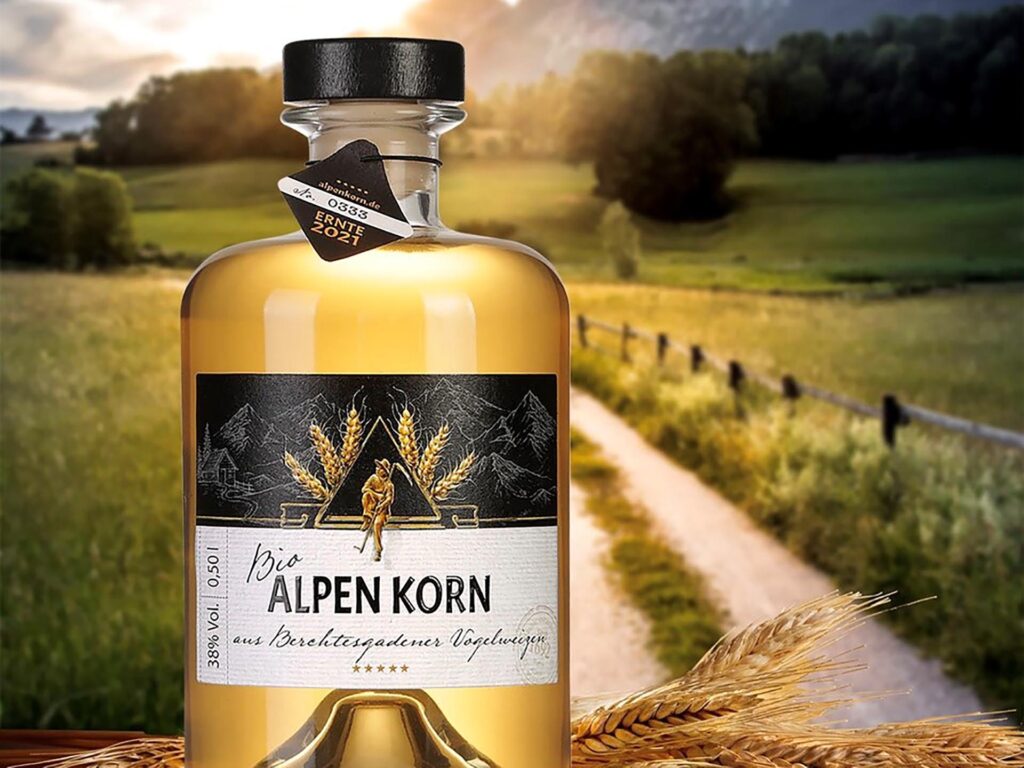
From the grain garden to regional value creation
The Berchtesgadener Vogel and its treasure keepers from agriculture, processing and retail are a fine example of how an old variety of grain can be valorized and preserved through regional processing.
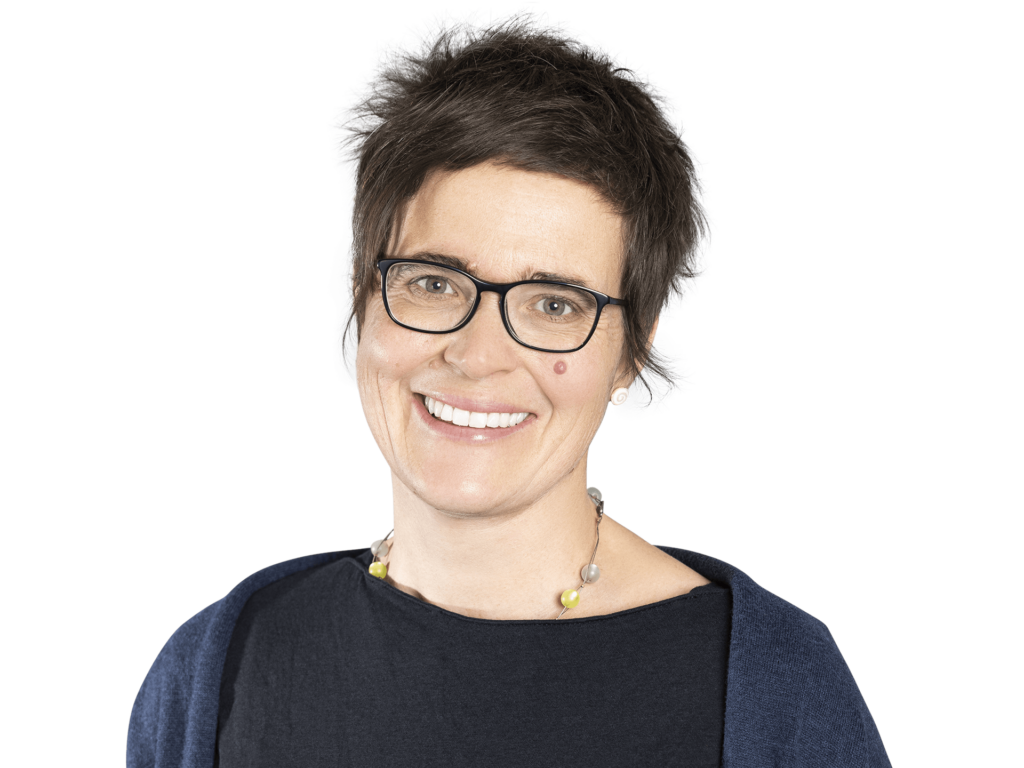
Your contact person
Karin Heinrich
Sustainable regional development, agriculture and public relations
